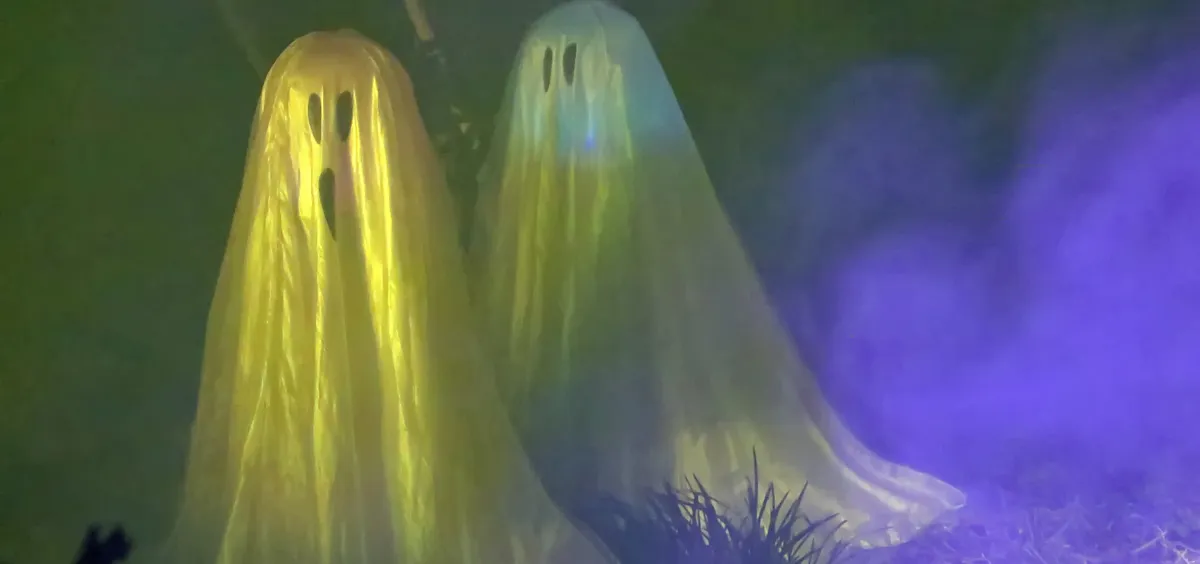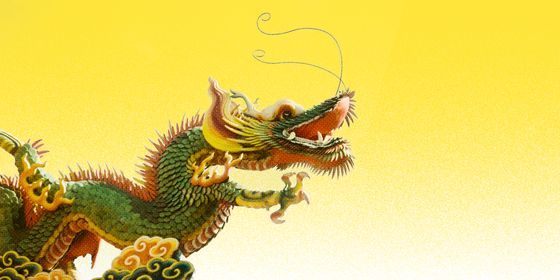Spooky and spectral sayings about ghosts
Choice Chengyu is a regular column, examining interesting, unique or newsworthy examples of chengyu—four-character idioms or proverbs, derived from historical and mythical events.
In China, the seventh lunar month is Ghost Month, and the fifteenth day is known as the Zhongyuan or “Hungry Ghost” Festival. On this day, it is believed that the gates of hell will swing open, and famished phantoms will venture to earth in search of food.
Such imaginative rituals inspire not only countless stories about ghosts—whether eerie tales from Pu Songling‘s Strange Stories from a Chinese Studio or hair-raising modern urban legends—but also many ghost-related chengyu.
魑魅魍魉 Evil spirits of every kind
The character 鬼 can refer to all sorts of evil phantoms: spirits, ghosts, monsters, or demons. With all four characters in this chengyu using 鬼 as the radical, it refers to a wretched situation filled with evil of every description:
Society fell to dark times, and evil people ran amok.
Shèhuì hēi’àn, chīmèi wǎngliǎng héngxíng.
社会黑暗,魑魅魍魉横行。
鬼话连篇 A string of ghostly words
Ghosts are not a trustworthy lot. A dishonest person is said to be spouting ghostly words:
You are full of lies!
Nǐ zhēn shì guǐhuà liánpiān!
你真是鬼话连篇!
鬼迷心窍 To be possessed by ghosts
Taken literally, this chengyu means to have fallen under a ghost’s spell. It is commonly used to explain unreasonable or foolish actions:
I don’t know why he made such an idiotic decision. He must have been possessed by ghosts.
Wǒ bùzhīdào tā zěnme huì zuòchū zhème chǔn de juédìng, yídìng shì guǐmíxīnqiào le.
我不知道他怎么会做出这么蠢的决定,一定是鬼迷心窍了。
鬼哭狼嚎 To wail like ghosts and howl like wolves
Nobody (that we know of) has actually heard a ghost wail, but we assume it’s loud and piercing. This chengyu is used to describe bloodcurdling cries and howls:
Ghosts wailed and wolves howled as the defeated enemy soldiers fled helter-skelter.
Dírén bèi shā de guǐkū lángháo, kuìbùchéngjūn.
敌人被杀得鬼哭狼嚎,溃不成军。
鬼使神差 Sent by ghosts or gods
As otherworldly beings, ghosts (鬼) are often associated with gods (神) in Chinese idioms. Like 鬼迷心窍, this chengyu describes people doing something inexplicable, as if possessed by supernatural beings, though not necessarily with negative conseqeunces:
As if the spirits made his mind wander, he walked back along the road he came.
Tā guǐshǐshénchāi de yánzhe yuánlù zǒu huílái le.
他鬼使神差地沿着原路走回来了。
神出鬼没 Appear like a god and disappear like a ghost
This idiom describes people who move about mysteriously, or those who are untraceable.
Nobody knows where he is now. He comes and goes like a god or a ghost.
Méiyǒu rén zhīdào tā de xíngzōng. Tā zǒngshì shénchū guǐmò de.
没有人知道他的行踪。他总是神出鬼没的。
神不知,鬼不觉 Unknown to god or ghost
This chengyu refers to something that’s a complete mystery—even ghosts and gods don’t know about it:
He appeared behind her out of nowhere.
Tā shénbùzhī guǐbùjué de chūxiàn zài le tā de shēnhòu.
他神不知鬼不觉地出现在了她的身后。
鬼斧神工 Ghost’s hatchet and god’s workmanship
Though most ghost-related chengyu are derogatory, this is a commendation for uncannily skilled craftsmanship:
This delicate craftsmanship is simply incredible, as if done by a ghost or god.
Zhè gōngyì zhī jīngqiǎo, zhēn kěwèi shì guǐfǔ shéngōng.
这工艺之精巧,真可谓是鬼斧神工。
Cover image from VCG













